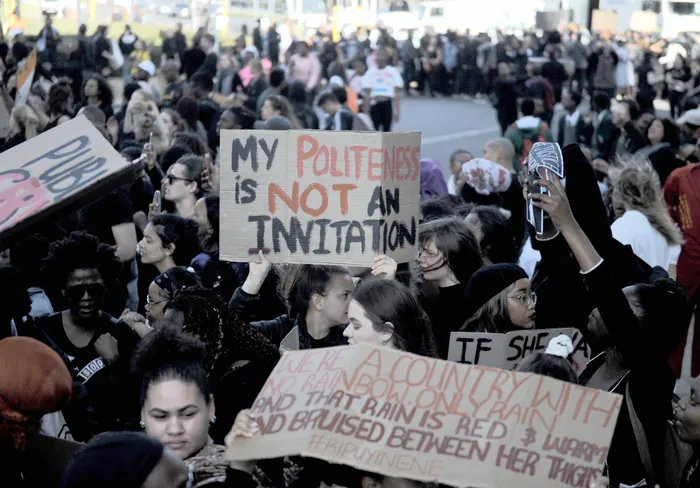16 Days of Activism: 'Young people ready to recognise GBV as a medical emergency'

File photo: Ayanda Ndamane/African News Agency (ANA). File photo: Ayanda Ndamane/African News Agency (ANA).
As South Africa continues commemorating 16 Days of Activism, young people have expressed their readiness to take a stand against gender-based violence and recognise it as a medical emergency.
This is according to a survey conducted by Doctors Without Borders (MSF) and Meraki Research.
The survey identified sexual violence and abuse as one of the top humanitarian crises facing society today for young people.
“The biggest problem is rape in our country and the woman who get raped are scared to report,” said one male respondent from Mpumalanga.
Healthcare for survivors of sexual violence meanwhile, rated as one of the top four most important healthcare services in South Africa for 18-35 year-olds.
Support for organisations providing medical care to survivors of sexual violence was near unanimous, with 96% of respondents affirming they would stand up for the cause.
For survivors, sexual violence is a medical emergency, MSF’s work in Rustenburg providing medical and psychological care to survivors has proven.
MSF said its medical staff have seen how sexual and gender-based violence, and especially rape, has severe detrimental effects on the survivor’s physical and mental health.
"Women who have been raped are exposed to mental and physical trauma, unwanted pregnancy, loss of pre-existing pregnancy, or acquisition of sexually transmitted infections, including HIV. Psychological consequences can include post-traumatic stress disorder, major depression, suicidality, and substance abuse.
"In the survey, the vast majority 72% of respondents said they would advise a friend surviving sexual violence to seek help at a rape crisis centre.
"However, almost half of 18-35 year-olds surveyed believed that survivors of sexual violence should first report the incident to police before receiving medical care."
MSF’s research and experience also suggests an emphasis on the legal aspect of dealing with sexual and gender-based violence (SGBV) obscures the serious medical and psychological needs of survivors therefore creating a barrier to accessing appropriate and comprehensive healthcare.
Reporting and the availability of supportive police and justice processes is important but these services should work in such a way that the urgent medical emergency needs of survivors are addressed immediately, said MSF.
Young people clearly agree on this prioritisation, with Claudine Pillay, 24, from KZN, saying: “Treatment first! Because if such an act is committed against you, your personal care should be more important than anything else. I mean, police procedure can take time and you should be comfortable speaking to the police and I think it is more important to be actually be treated, for your injuries to be treated before".
The prevalence and intensity of sexual violence in South African society demands a response that demonstrates commitment and urgency to the needs of survivors combined with citizen’s support to ensure it remains a priority for government and communities.
“Young people in South Africa are ready to take a stand. They have a key role to play in reframing our society’s understanding of sexual violence to put the medical and psychological needs of survivors at the centre of South Africa’s response to SGBV. We are encouraged that they are ready
to stand with us,” concluded General Director of MSF Southern Africa Guilhem Molinie.

IOL
Gender-based violence a shame on the good name of SA, says Ramaphosa
Tshwane gender-based violence shelters hamstrung by finance
#MenAreTrash trending again as brutality continues
16 Days of Activism: Violence against women betrays African culture - Ramaphosa
Enough is enough: Ramaphosa's speech for 16 Days of Activism for No Violence Against Women and Children
Don't Look Away: Investigating hi-tech ways of fighting gender-based violence
Don't Look Away: Men killed these women and children